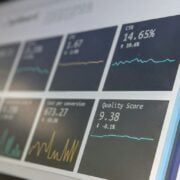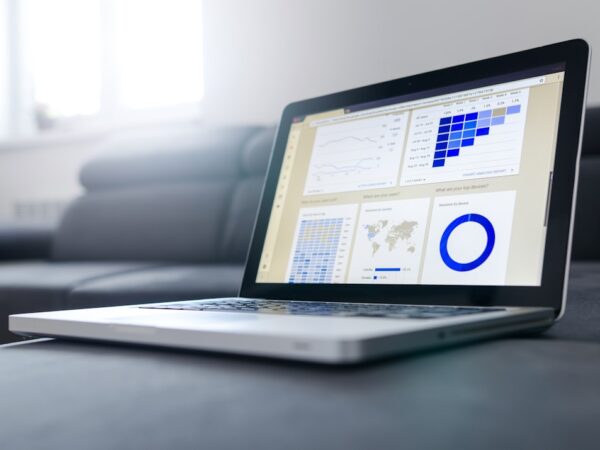
The Power of Economic Theories and Models: How They Shape Our Understanding of the World
Economic theories and models are fundamental tools used by economists to understand and explain the behavior of individuals, businesses, and governments in the economy. These theories and models provide a framework for analyzing economic phenomena and making predictions about future outcomes. They are based on assumptions about human behavior, market conditions, and other factors that influence economic activity.
The importance of economic theories and models cannot be overstated. They allow economists to study complex economic systems and make sense of the vast amount of data that is available. By using these tools, economists can identify patterns, test hypotheses, and make informed predictions about the future. Economic theories and models also provide a common language for economists to communicate their ideas and findings to each other and to policymakers.
Key Takeaways
- Economic theories and models are frameworks used to understand and explain economic phenomena.
- These theories shape our understanding of the world and influence decision-making in various fields.
- Economic models are important tools for decision-making, as they allow for the analysis of complex economic systems and the prediction of outcomes.
- Economic theories and models have evolved over time, reflecting changes in economic systems and societal values.
- Economic theories and models have a significant impact on policy-making, but they also have limitations and must be used with caution.
The Role of Economic Theories in Shaping Our Understanding of the World
Economic theories play a crucial role in shaping our perception of the world. They provide us with a framework for understanding how individuals, businesses, and governments make decisions and interact with each other in the economy. For example, the theory of supply and demand helps us understand how prices are determined in markets and how changes in supply or demand can affect prices.
Another example is the theory of comparative advantage, which explains why countries specialize in producing certain goods and trade with each other. This theory has greatly influenced our understanding of international trade and globalization. It has also shaped policies aimed at promoting free trade and reducing barriers to trade.
The Importance of Economic Models in Decision-Making
Economic models are essential tools for decision-making in both the public and private sectors. These models allow policymakers, businesses, and individuals to analyze the potential impact of different policies or actions before they are implemented. By simulating different scenarios, economic models can help decision-makers identify the most effective course of action or predict the likely outcomes of their decisions.
For example, macroeconomic models are used by central banks to analyze the impact of monetary policy on inflation, employment, and economic growth. These models help policymakers determine the appropriate level of interest rates or the amount of money in circulation to achieve their policy objectives.
In the business world, economic models are used to analyze market conditions, forecast demand for products or services, and optimize production and pricing strategies. For example, a company may use a demand-supply model to determine the optimal price for a product based on consumer preferences and production costs.
The Evolution of Economic Theories and Models
| Year | Economic Theory/Model | Key Contributors | Main Concepts |
|---|---|---|---|
| 1776 | The Wealth of Nations | Adam Smith | Division of labor, invisible hand, free market |
| 1871 | Principles of Economics | Carl Menger | Marginal utility, subjective value, market price |
| 1936 | General Theory of Employment, Interest and Money | John Maynard Keynes | Aggregate demand, government intervention, fiscal policy |
| 1957 | Theory of Economic Growth | Robert Solow | Capital accumulation, technological progress, steady state |
| 1970 | Efficient Market Hypothesis | Eugene Fama | Market efficiency, random walk, information asymmetry |
| 1990 | New Institutional Economics | Oliver Williamson | Transaction costs, property rights, governance structures |
Economic theories and models have evolved significantly over time as economists have sought to better understand and explain economic phenomena. The history of economic thought can be traced back to ancient civilizations, but it was during the 18th and 19th centuries that modern economic theories began to emerge.
One of the most influential figures in the development of economic theories was Adam Smith, whose book “The Wealth of Nations” laid the foundation for classical economics. Smith argued that individuals pursuing their own self-interest in a free market would lead to the greatest overall prosperity for society as a whole.
In the 20th century, new schools of thought emerged, such as Keynesian economics, which focused on the role of government in managing aggregate demand and stabilizing the economy. Other schools of thought, such as monetarism and supply-side economics, also gained prominence during this time.
The Impact of Economic Theories on Policy-Making
Economic theories have a significant impact on policy-making at both the national and international levels. Policymakers rely on economic theories to guide their decisions and design policies that are intended to achieve specific economic objectives.
For example, Keynesian economics has had a major influence on fiscal policy, particularly during times of economic downturns. Keynesian theory suggests that during recessions, governments should increase spending or cut taxes to stimulate aggregate demand and boost economic growth.
Another example is the theory of comparative advantage, which has shaped international trade policies. This theory argues that countries should specialize in producing goods and services in which they have a comparative advantage, and trade with other countries to obtain goods and services that they cannot produce efficiently. This theory has been used to justify the removal of trade barriers and the promotion of free trade.
The Limitations of Economic Theories and Models
While economic theories and models are valuable tools for understanding the economy, they have their limitations. One criticism is that economic theories often rely on simplifying assumptions that do not accurately reflect the complexity of real-world economic systems. For example, many economic models assume that individuals are rational and have perfect information, which may not be the case in reality.
Another limitation is that economic theories and models are based on historical data and past patterns, which may not always be a reliable guide to future outcomes. Economic conditions and behaviors can change over time, making it difficult to predict future trends accurately.
Additionally, economic theories and models often overlook important social and environmental factors that can influence economic outcomes. For example, traditional economic models may not adequately account for the social costs of pollution or the impact of income inequality on economic growth.
The Interdisciplinary Nature of Economic Theories and Models
Economic theories and models are not limited to the field of economics alone. They intersect with other disciplines such as sociology, psychology, political science, and environmental science. This interdisciplinary approach allows economists to gain a more comprehensive understanding of economic phenomena and their broader implications.
For example, behavioral economics combines insights from psychology with economic theory to study how individuals make decisions in real-world situations. This field challenges the assumption of perfect rationality in traditional economic models and explores how cognitive biases and social influences can affect decision-making.
Environmental economics is another interdisciplinary field that applies economic principles to environmental issues. It seeks to understand how human activities impact the environment and develop policies that promote sustainable development. This field has become increasingly important as concerns about climate change and resource depletion have grown.
The Influence of Economic Theories on Globalization and International Trade
Economic theories have played a significant role in shaping globalization and international trade. The theory of comparative advantage, developed by David Ricardo, has been a driving force behind the expansion of global trade.
According to this theory, countries should specialize in producing goods and services in which they have a comparative advantage, meaning they can produce them at a lower opportunity cost than other countries. By trading with other countries, each country can obtain goods and services at a lower cost than if they were to produce them domestically.
This theory has been used to justify the removal of trade barriers and the promotion of free trade. It has also influenced the formation of regional trade agreements, such as the European Union and the North American Free Trade Agreement (NAFTA).
The Role of Economic Theories in Addressing Social and Environmental Issues
Economic theories can also be applied to address social and environmental issues. For example, the concept of externalities is central to understanding how economic activities impact the environment and society.
Externalities occur when the production or consumption of a good or service affects third parties who are not directly involved in the transaction. For example, pollution from a factory can harm the health of nearby residents or damage ecosystems. Economic theories can help policymakers design policies that internalize these external costs and promote sustainable development.
Another example is the application of economic theories to address income inequality and poverty. Theories such as human capital theory and the theory of intergenerational mobility can help policymakers understand the factors that contribute to income inequality and develop policies that promote social mobility and reduce poverty.
The Future of Economic Theories and Models in a Changing World
As the world continues to evolve, economic theories and models will need to adapt to new challenges and realities. Technological advancements, demographic changes, and environmental concerns are just a few of the factors that will shape the future of economics.
One emerging area of research is the study of the digital economy and its impact on traditional economic models. The rise of e-commerce, digital platforms, and artificial intelligence has disrupted traditional industries and raised new questions about market competition, labor markets, and income distribution.
Another area of focus is the integration of environmental sustainability into economic models. As concerns about climate change and resource depletion grow, economists are developing models that incorporate the costs of environmental degradation and the benefits of sustainable practices.
In conclusion, economic theories and models are essential tools for understanding and explaining the behavior of individuals, businesses, and governments in the economy. They shape our perception of the world, guide decision-making, influence policy-making, and provide a framework for addressing social and environmental issues. While economic theories and models have their limitations, they continue to evolve in response to a changing world. It is crucial for economists to continue exploring and developing these theories and models to ensure that they remain relevant and effective in addressing the complex challenges of the future.
If you’re interested in exploring economic theories and models, you might find this article on Wave Magnets intriguing. Wave Magnets is a website that delves into various aspects of economics and offers valuable insights. One particular article that caught my attention is their piece on “The Role of Behavioral Economics in Shaping Economic Policies.” This article discusses how behavioral economics can provide a fresh perspective on traditional economic theories and models, ultimately influencing policy decisions. To read more about this fascinating topic, check out the article here.
FAQs
What are economic theories?
Economic theories are explanations of how the economy works, why it behaves the way it does, and how it can be improved. They are based on assumptions about human behavior, markets, and government policies.
What are economic models?
Economic models are simplified representations of the real world that help economists understand and analyze economic phenomena. They are based on mathematical equations and assumptions about the behavior of individuals, firms, and governments.
What are the main economic theories?
The main economic theories include classical economics, Keynesian economics, neoclassical economics, and Marxist economics. Each theory has its own assumptions about the behavior of individuals, markets, and governments, and its own policy recommendations.
What is classical economics?
Classical economics is a theory that emphasizes the role of markets in allocating resources and the importance of individual self-interest in driving economic growth. It is based on the ideas of Adam Smith, David Ricardo, and other 18th and 19th century economists.
What is Keynesian economics?
Keynesian economics is a theory that emphasizes the role of government in stabilizing the economy and promoting full employment. It is based on the ideas of John Maynard Keynes, who argued that government spending and monetary policy could be used to stimulate demand and reduce unemployment.
What is neoclassical economics?
Neoclassical economics is a theory that emphasizes the role of markets in allocating resources and the importance of individual rationality in decision-making. It is based on the ideas of Alfred Marshall, Leon Walras, and other late 19th and early 20th century economists.
What is Marxist economics?
Marxist economics is a theory that emphasizes the role of class struggle in driving economic change and the importance of collective ownership of the means of production. It is based on the ideas of Karl Marx and Friedrich Engels, who argued that capitalism would eventually be replaced by socialism or communism.













